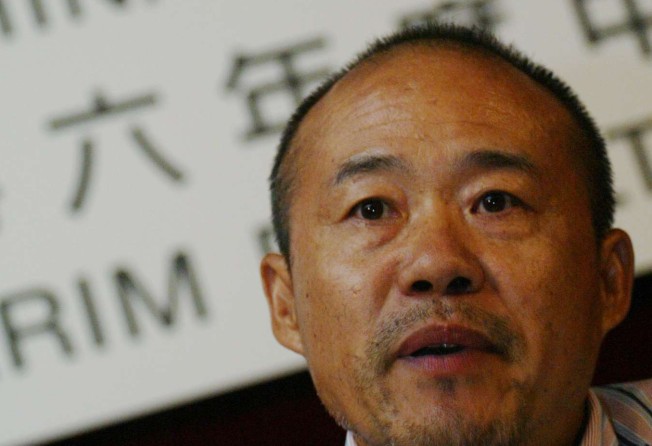Vanke management shake-up proposal still up in the air
Developer’s Shenzhen shares plunge 10 per cent as trading resumes after six-month suspension

China Vanke’s shares in Hong Kong soared after the property developer said it had rejected a call from its biggest shareholder, Baoneng Group, for an investor meeting aimed at firing its entire board.
But Vanke’s top management may still be shaken up as Baoneng can convene a shareholders meeting by themselves.
Shares in the country’s largest property developer soared 6.7 per cent to HK$16.22 in Hong Kong on Monday, while its shares in Shenzhen plunged by the daily limit of 10 per cent in resumed trade, to 21.99 yuan, after being suspended for more than six months.
Vanke has been trying to fend off a potential hostile takeover by privately owned conglomerate Baoneng since late last year and its shares in Shenzhen were suspended in December 18 at the request of the company when Baoneng became its biggest shareholder.
In late June, Baoneng requested an extraordinary shareholder meeting seeking to oust the Vanke board, including chairman Wang Shi.
Despite the initial board rejection, however, Baoneng can still propose to a supervisory committee to convene an EGM, according to Vanke’s filing to the Hong Kong stock exchange.
Even it fails, Zhu Xu, secretary to the board of Vanke told South China Morning Post, that Baoneng can call the shareholders’ meeting by themselves to remove the board and the chairman.
The resolution could be passed if shareholders representing over 50 per cent of the votes support the proposal at the shareholders meeting, Zhu said.
Baoneng has a 24.26 per cent stake in Vanke.
Vanke president Yu Liang last week said the company’s sales and ratings were already being adversely affected because of Baoneng’s proposal.
In another twist, Vanke’s largest individual shareholder Liu Yuansheng on Monday filed a letter of accusation to Chinese regulators, including the Shenzhen and Hong Kong stock exchanges.
It questioned whether there had been any insider trading between Baoneng and state-owned China Resources, the company’s second largest shareholder, as the latter did not oppose Baoneng’s stake increase, but did oppose Vanke’s introduction of Shenzhen Metro.
The developer announced a plan in June to bring in Shenzhen Metro as ‘white knight’ through a 45.6 billion yuan asset swap deal, which would dilute Baoneng’s stake.
Vanke has been trying to fend off a potential hostile takeover by Baoneng since late last year when the latter replaced China Resources to become the company’s largest shareholder.
Adding to the drama, market rumours now suggest China Resources also originally planned to submit a restructuring plan to kick out Wang Shi and two other independent directors.
That proposal was not announced, however, because the plan was rejected by the State-owned Assets Supervision and Administration Commission, the state agency which oversees China Resources.
While Baoneng’s next move remains unclear, analysts say it could also face financial challenges, if Vanke’s shares in Shenzhen continue to slump.
Baoneng has borrowed heavily to grow its stake in Vanke since late last year.
Part of its margin financing could face a margin call if Vanke shares decline more than 20 per cent.
Analysts expect Vanke’s mainland shares to narrow a combined 20-30 per cent from its last closing price in December, given the 18 per cent decline in the Shenzhen Composite Index during Vanke’s trading halt and because Vanke’s last closing price, 24.43 yuan, was considered overvalued amid Baoneng’s buying of its stake.
“It is highly possible Vanke’s Shenzhen shares will decline more than 30 per cent so that its valuation will be closer to its Hong Kong share price, ” said Carol Wu, China property analyst at DBS Vickers.
China Banking Regulatory Commission estimates Baoneng has borrowed three times the amount of its own cash to increase its stake in Vanke, mainland media Caixin reported.
But it is hard to measure the entire leverage Baoneng has tapped as it has borrowed through different kinds of financial products, not just from banks.
In an earlier version of this story we incorrectly referred to the 18 per cent decline in the ‘Shenzhen Component Index’’.